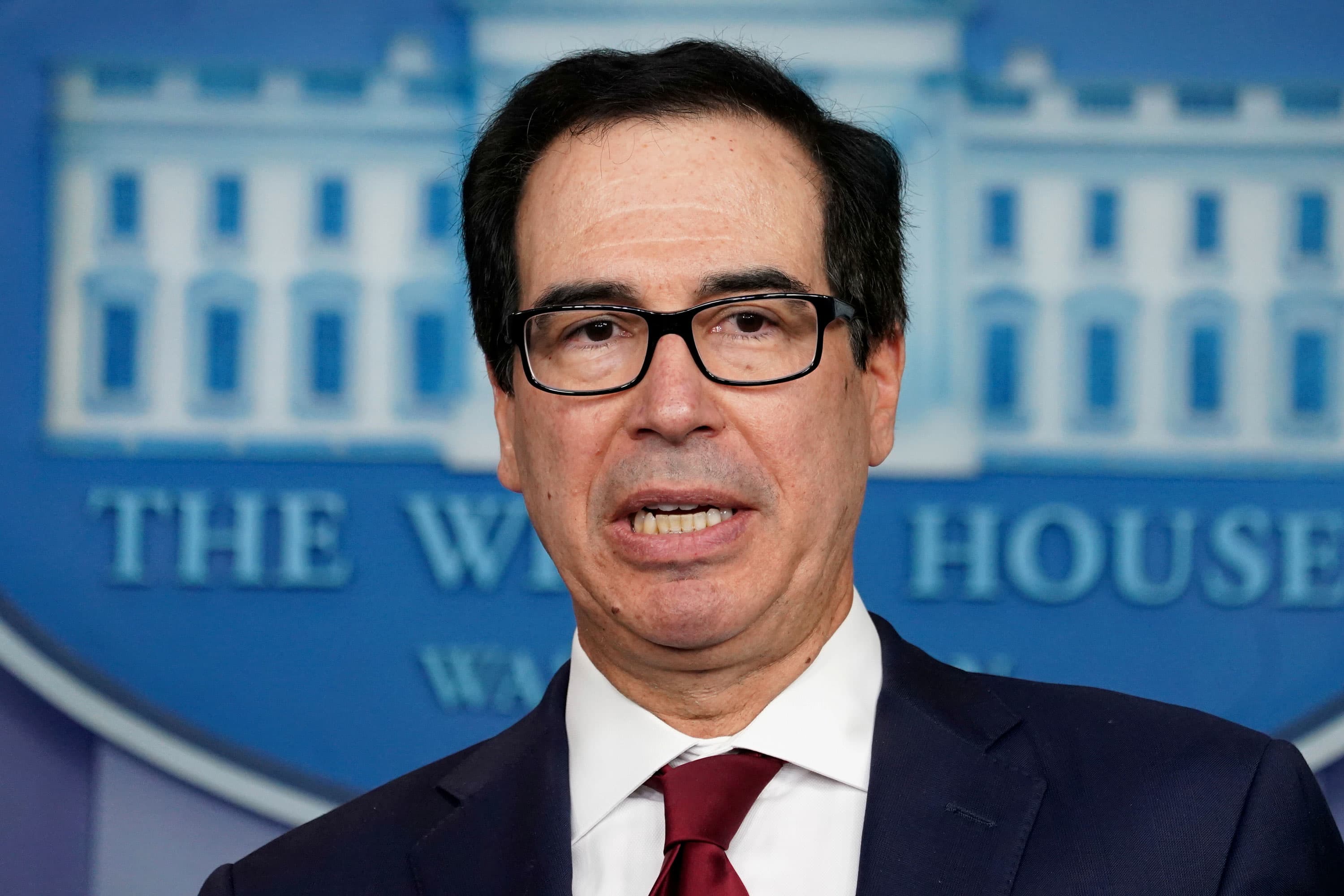U.S. Treasury Secretary Mnuchin announces new sanctions on Iran in the Brady Press Briefing Room of the White House in Washington, January 10, 2020.
Kevin Lamarque | Reuters
Treasury Secretary Steven Mnuchin said Sunday that Boeing‘s 737 Max crisis could curb U.S. GDP in 2020 by half a point, though he expects the economy should still experience roughly 2.5% in economic growth.
“There’s no question that the Boeing situation is going to slow down the GDP numbers,” Mnuchin in an interview on Fox News’ “Sunday Morning Futures.” “Boeing is one of the largest exporters, and with the 737 Max, I think that could impact GDP as much as 50 basis points this year.”
Boeing’s 737 Max jet has been grounded since March after two crashes killed 346 people. Regulators say they have no firm timeline to allow the planes to fly again, and U.S. airlines have taken the planes out of their schedules until at least March.
The fallout has cut more than $50 billion from Boeing’s market value and has cost airlines more than $1 billion.
“For this year, we’ve been looking at 2.5 to 3%, as I said, it may be closer to 2.5 because of the adjustment of the Boeing numbers,” Mnuchin said regarding 2020 economic growth. “But this would have been 3% otherwise.”
The U.S. economy remains in the midst of the longest economic expansion on record, though some economists expect slowing growth and a potential recession over the next 12 months.
Mnuchin said he expects the U.S.-China phase-one trade deal and the U.S-Mexico-Canada Agreement to add significantly to economic growth in 2020.
The U.S. and China plan to sign a phase-one trade deal on Wednesday, which includes China purchasing $200 billion worth of U.S. goods over the next two years and the U.S. reducing tariffs on about $120 billion worth of Chinese products.
The Senate Finance Committee also approved the new North American trade deal last Tuesday, but the deal still needs to be passed by the full Senate. The trade deal will take effect once all three countries ratify it. The USMCA makes changes to protect auto industry workers, increases access to Canadian dairy markets for U.S. farmers and updates digital trade rules.
